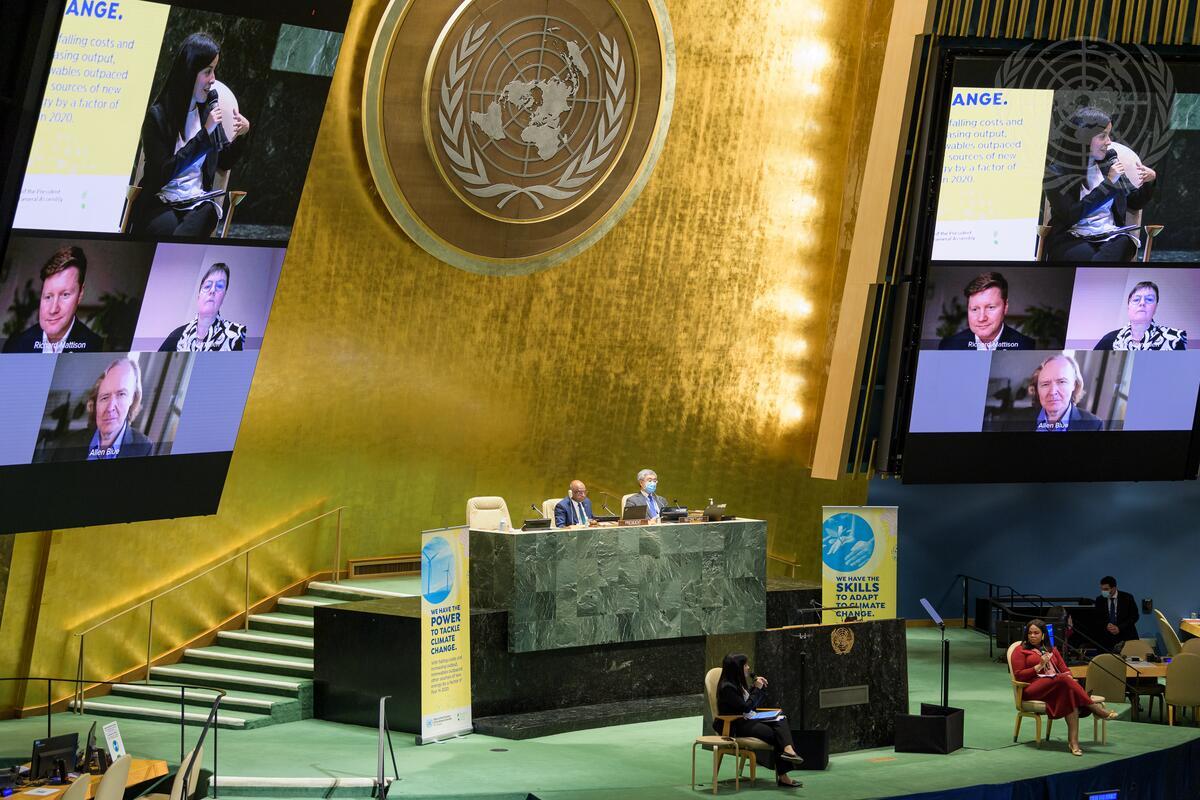
Will COP26 Definitively Produce an International Response to Climate Change?

Sunday, 31 October 2021 marked the beginning of the United Nations Conference on Climate Change’s 26th Conference of the Parties (COP26) in Glasgow, Scotland, United Kingdom. The procedural opening negotiations kicked off an intensive two weeks aimed to “secure global net zero emissions, adapt to protect communities and natural habitats, mobilize at least $100 billion in climate finance per year and work together to address climate change.” COP26 builds off the momentous success of COP21 held in Paris, France in 2015 and resulted in the Paris Agreement. For the first time, countries banded together under a common cause to address and adapt to climate change. It bears remembering, however, what is at stake and if the Paris Accords are enough to quickly and effectively address climate change and its effects. COP26 and the remainder of the 2020’s are crucial turning points in the climate crisis. Are we up to the challenge?
The fallout from the climate crisis has already begun. On 7 August 2021, Working Group I of the Intergovernmental Panel on Climate Change published a full report on the scientific basis and effects of climate change. The Summary for Policymakers clearly stated that rises in greenhouse gases (GHGs) are unequivocally human caused and that these GHGs are very likely driving climate change and are causing global glacier retreat (very likely); increases in hot extremes frequency, intensity and duration (virtual certainty); and increasing the chance of concurrent extreme weather events such as confluencing droughts and heatwaves (likely). Thus, it is “unequivocal that human influence has warmed the atmosphere, ocean and land” (4).
Clearly, this paints a grim outlook for the world moving forward. This is reflected by recent reports released by President Biden’s administration which predicted rising competition for resources and increased geopolitical conflict. The reports further indicated that developing nations are already feeling the impacts of a warming climate and that they will be disproportionately affected. An estimated 143 million people from Latin America, South Asia and Sub-Saharan Africa will be displaced by climate change by 2050. Indeed, these regions of the Global South are the world’s least able to adapt to the changing climate. Which states are, historically, the worst emitters is important in addressing who needs to take responsibility and to offer lesser developed nations financial and technological support. The United States ranks as the largest historical emitter comprising some 20% of all emissions since 1850. China comes in a distant second with 11%. Meanwhile, states like Germany, France and the United Kingdom have cut emissions drastically but still remain important historical contributors.
Developed nations committed to contributing $100 billion annually to aid adaptation and mitigation efforts and promote the development of greener economies. These commitments were made at the 2009 Copenhagen climate summit, within the Paris Agreement in 2015, and will be further ironed out at COP26. As of yet, however, only around $80 billion has materialized. Based in part on these long standing promises and the unequal distribution of resources during the COVID-19 pandemic, rebuilding trust between developed and developing nations will be an uphill battle in combating climate change and climate injustice.
It is already becoming clear that paradigm shifts in how the international community views and approaches climate change are not occurring. Climate change is a universal concern that transcends national borders and should transcend national sovereignty. Notably, Chinese President Xi Jinping submitted a written COP26 address, despite the conference being in-person. The address offered no new commitments and built off pre-existing commitments of reaching peak emissions in 2030 before reaching net zero production in 2060. Similarly, India has committed to reaching net zero by 2070. These efforts, however, are a far cry from putting a price on nature and making the climate a central issue in national and international security. Far from agreeing to do away with all activities that harm the biosphere, opening borders to external scrutiny and placing hard limits on emissions, these actions and the speeches at COP26 reflect business as normal. A paradigm shift is critical. Humanity is running out of time to adequately respond to a changing climate. Despite the science and the suffering of developing nations and island states, it is clear that the political will to do something ambitious just is not present.
A recent letter to global media editors by Greta Thunberg and Vanessa Nakate illustrates the need to act quickly and dramatically. The absence of China and Russia in-person at COP26 is unfortunate and calls into question how effective and long-lasting the impacts from this Glasgow conference will be. When leaders return home, will their commitments still hold? Should their commitments falter and COP26 net lackluster, unambitious measures it is not clear how many more opportunities humanity will get before the effects of climate change are irreversible. The time to act is now. Unfortunately, the paradigm shifts necessary to make the needed changes and materialize the necessary funds will probably not occur at this conference or any others in the immediate future. The science is unequivocal, the power to change is entirely in humanity’s hands, the only thing left is to shift talk to actual, meaningful action. Will that happen in time?
Keep Up With The Accords
More to read
The AMUN Accords is a premier resource for fact-based Model United Nations simulations. We are always looking for new contributors. Want to write for the AMUN Accords? Check out out the submission guidelines and then get in touch!




